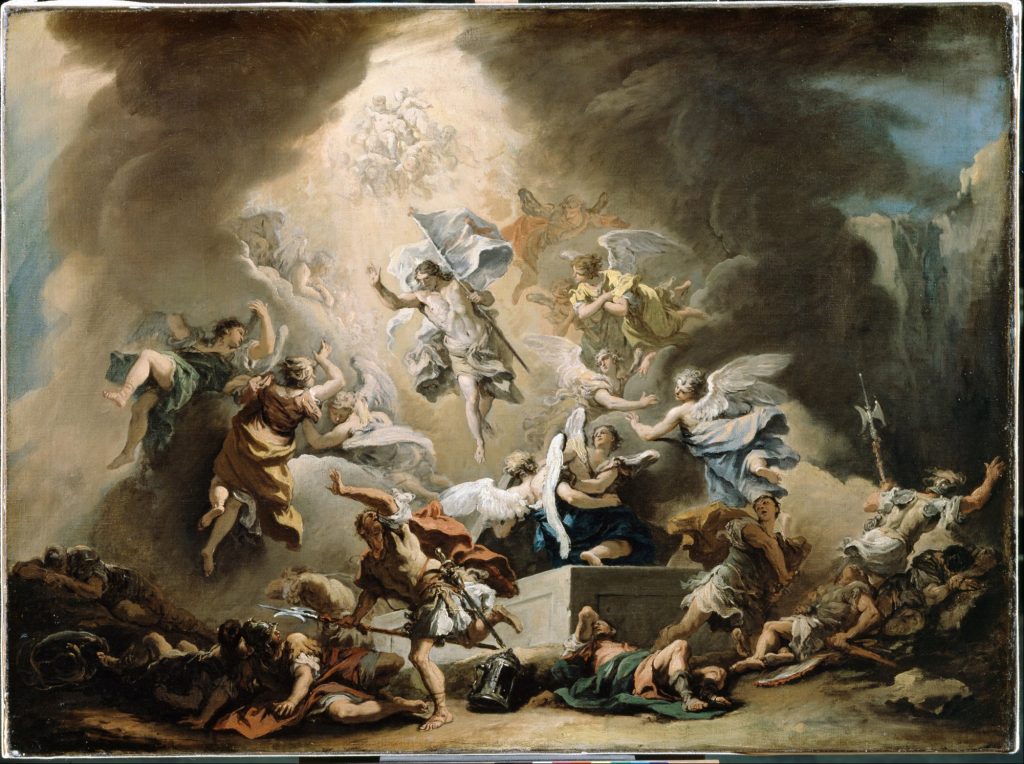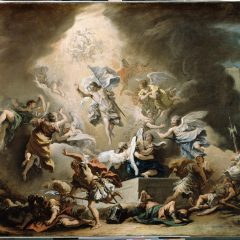children of God
Distinguished Life Member

13th Sunday In Ordinary Time
Deacon Tom Vert
Preached: June 28, 2020
“I am a distinguished life member!”
Seven years ago, I heard myself say these words when I received this status for an engineering community that I am involved with.
Those who know my background, know that I have a degree in ceramic engineering and a specialty in something called refractories. Refractories are bricks and concretes that are used at extreme temperatures over 1600 degrees Celsius in the harsh processes of steel plants, cement plants, incinerators, glass factories, etc.
It is a very unique speciality and the community that researches, installs, uses and talks about this is definitely a group of “geeks” from all over the world! They meet at least every two years around the world to discuss the latest and greatest, and when you get old enough, and enough grey hair, you get considered to be designated as a distinguished life member (DLM).
The DLM status has no money awarded, but instead recognition from your peers and an invitation to join every future meeting of “refractory nerds” at no cost!
Needless to say, I was thrilled with this status and the expectation to share my wisdom and knowledge with the future generations.
Attaining this status or designation came to me as a key message of today’s readings.
St. Paul tells the Romans, as well as us, what it means to be designated the status of “Christian” at the time of their baptism.
Paul says that Christians have died to their old self and the world and have risen with Christ and belong to the new world. Therefore, they must then behave accordingly and “walk in newness of life!”
Baptism, he says, is the new starting point, both when Christ started his ministry after his own baptism in the Jordan and for us as our starting point on our journey of faith. We join the Body of Christ, the people of God – our future is different.
We have died to our sinful nature and that Christ’s death and resurrection enable us to conquer the fear of our own death, and therefore live as happy, faithful, joyous Christians both now and eternally, knowing our status as Christian children of God.
This status as Christian, does not mean a life of leisure, of everything going perfect, or of ease and comfort.
We hear from Christ himself when he tells his disciples that they will have to take up their cross and may even have family members not agree with the path they have chosen.
The Christian journey is not easy always he says to us and is a matter of priorities. If we put Christ and God first in our lives, we may be ridiculed, but this is the cross we take up and walk with on the journey of faith.
We move from self-centred and me-first, to selfless, forgiving, and loving. We take time to pray, reflect, worship and actively help in our community. Of course, this will allow for less time and focus on minor worldly matters that aren’t important, like what clothes, or shoes, or cars we buy, but it is the path that we freely choose.
The purpose of our life is to use our gifts to serve others to bring the kingdom of God to the here and now. If we lose our life of using our gifts to serve ourselves only (self-focus), then we can find our lives in doing God’s work, and in making our societies a better place.
The Christians who champion and/or protest for social justice, fair trade, peace, anti-racism, anti-bullying; the ones who push for reform in education, housing, and the growing wealth gap between rich and poor; these are taking up the cross, the ones who may be ridiculed for their just causes. These are the people that Jesus says are not afraid to lose their life for the sake of the gospel.
We also see a great example in the first reading today. We see a wealthy woman take care of Elisha the prophet, who she sees in need of shelter and food. And when he asks her if she wants anything in return for her kindness, she says no, and that she is happy to live the simple life she has.
The woman could have asked for anything, but in her status as a child of God and faithful woman, she humbly states that she is happy with what she has.
We are called with our status of Children of God to get involved with the needs of the people God puts into our lives, to love our neighbour as ourselves.
We are to find our lives as God’s ambassadors, as God’s hands, when we put our gifts at his disposal.
We are Christians, we are baptized to a faith that helps those most in need, that puts an emphasis on love, on forgiveness, on peace, on joy and tapping into the power of the Holy Spirit to enable us to be what God wants us to be – Distinguished Life Members!
Children Of The Resurrection

32nd Sunday In Ordinary Time – Year C
Fr. Mark Gatto
Preached: November 10, 2019
Once upon a time there was an old woman who died and was taken to the Judgment Seat by the angels. While examining her records, however, they could not find a single act of charity performed by her except for a carrot she had once given to a starving beggar.
Such, however, is the power of a single deed of love that it was decreed that she be taken up to heaven on the strength of that carrot. The carrot was brought and given her. The moment she caught hold of it, it began to rise as if pulled by some invisible string, lifting her up toward the sky.
A beggar appeared. He clutched the hem of her garment and was lifted along with her; a third person caught hold of the beggar’s foot and was lifted too. Soon there was a long line of persons being lifted up to heaven by that carrot. And strange as it may seem, the woman did not feel the weight of all those people who held onto her; in fact, since she was looking heavenward, she did not see them.
Higher and higher they rose until they were almost near the heavenly gates. That is when the woman looked back to catch a glimpse of the earth and saw this whole train of people behind her. She was angry! She gave an imperious wave of her hand and shouted, “Off! Off, all of you! This carrot is mine!” In making her big gesture, she let go of the carrot for a moment – and down she fell with the whole group.
Jesus is faced with certain Scribes who said there is no resurrection. But, Jesus is very clear that there is a resurrection, that in death we are sons and daughters of God and children of the resurrection. For God is the God of the living not the dead.
As Catholics we express the core of our beliefs each Sunday when we profess together the Creed. Usually we use the ancient Apostle’s Creed, whose final line says we believe in “the resurrection of the body and life everlasting.”
We do believe in a life after death and when we proclaim our belief in the resurrection of the body, we are saying that we remain who we are. We will know each other in this new life. You will know your loved ones and be with them again. We do not become something or someone else or just become part of some mass group. In the resurrection we maintain our identity.
Think of a baby in its mother’s womb and then think of that baby when they are 80 years old. They look very different, have a very different life, but he or she remains the same person. So, in the resurrection we will have a very different life, but we will remain who we are.
As Catholics we have a saying, Lex Orandi Lex Credendi, that the way we pray is the way we believe. What we believe about the resurrection and life after death is celebrated in our Catholic Funeral Rites.
The Catholic Funeral Liturgy uses symbols connected to Baptism and to Easter, since in Baptism we were first united to Jesus and his death and resurrection. We focus on Easter to highlight our belief in the resurrection. The priest wears white garments as at Baptism and Easter. The Easter Candle is lit near the casket or ashes, a white pall is placed on the casket as symbol of the white baptismal garment. Water is sprinkled as a reminder of the water of baptism.
Eulogies are not normally central in the funeral liturgy because we are not just remembering a past life that is now finished. We are looking forward to the resurrection and the hope that we will be together again. In our grieving we are also people of hope.
We are people who believe in the resurrection and life everlasting. This belief we profess each Sunday in the Creed, and we celebrate in the Catholic Funeral Rites. We are also to live what we believe. That means we are to live now ready to enter the life of the resurrection.
We do that by living as children of God right now, by learning not to cling to things in this life, money, possessions, anything that interferes with the way of God, of truth, of justice, of love.
That woman was being carried up to heaven by one small carrot given as an act of love. What are the acts of love carrying us? In the end, it did not bring her all the way, because she was even clinging to this small carrot, “it is mine.” We all need to become free, no longer clinging, this is mine, that is mine. Then we will be sons and daughters of God, children of the resurrection, light enough to be carried into life everlasting.

